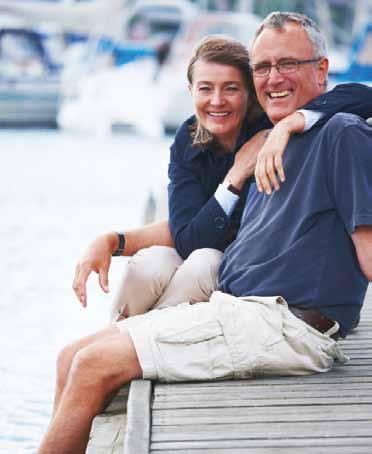
3 minute read
Governance structure
ANZUP ORGANISATIONAL CHART - March 2012
SECRETARIAT
INDEPENDENT DATA MONITORING COMMITTEE (IDMC)
BOARD
SCIENTIFIC ADVISORY COMMITTEE (SAC)
SAC SUBCOMMITTEES FINANCE & AUDIT COMMITTEE
FUNDRAISING AND PROMOTION SUBCOMMITTEE
Bladder Cancer Correlative & Translational Research Prostate Cancer Quality of Life & Supportive Care Renal Cell Cancer Germ Cell Consumer Advisory Panel
http://www .anzup .org .au/content .aspx?page=ourstructure
Governance Structure Continued
ANZUP Cancer Trials Group Ltd is a collaborative, national and international, urogenital and prostate cancer, clinical trials, and research group. The organisational structure of ANZUP reflects its corporate governance and operational areas of responsibility.
• Board: The Board comprises the Directors of the Company and is responsible for financial management, corporate governance, reporting and compliance . The Board consists of five elected Directors and up to three Appointed Directors (one Appointed Director position currently vacant) . The Board meets by teleconference approximately once every 2 months and face-toface several times per year .
• Finance and Audit Committee: A subcommittee of the Board . Its main objectives are to assist the Board in the discharge of its responsibility to exercise due care, diligence and skill; and to provide a formal forum for financial management, compliance and control .
• Fundraising and Promotion Committee: A subcommittee of the Board . Its main objectives are to identify and pursue opportunities for additional revenue through fundraising and production of relevant marketing materials for ANZUP .
• Secretariat: The secretariat comprises an Executive Officer (Margaret McJannett, currently 0 .8 FTE) and a Project Officer (Yi Feng; 0 .4 FTE) . The company’s registered office is located in Sydney .
• Scientific Advisory Committee (SAC): The SAC consists of a core of members representing the major disciplines relevant to ANZUP, nominated and appointed upon the recommendation of those groups . In addition, chairs of the SAC subcommittees are members of the SAC by virtue of their appointment as Chair . The SAC meets by teleconference quarterly with the intention of meeting face-to-face at least once per year .
• SAC Subcommittees: The SAC is advised by disease-specific subcommittees (Prostate; Renal; Germ Cell; Bladder) and nondisease-specific subcommittees (Quality of Life & Supportive Care; Correlative and Translational Research; Consumer Advisory Panel) . The disease-specific subcommittees are responsible for oversight of trials within their portfolios, as well as development of new trial concepts . These subcommittees meet by teleconference quarterly and intend to meet faceto-face at least once per year if resources permit . The nondisease-specific subcommittees are involved as required in trial development and management in order to ensure that maximum value is added to every trial . These subcommittees meet by teleconference as required and intend to meet face-toface at least once per year . • Consumer Advisory Panel (CAP): The CAP comprises consumer representatives who advise ANZUP at all levels of governance, from the Board and SAC and its subcommittees through to specific trials and research projects . The CAP also provides a conduit for communication from ANZUP back to the community in order to promote research and engage community support . The CAP meets by teleconference as required and intends to meet face-to-face at least once per year .
• Operations Executive Committee: This committee consists of representatives from ANZUP and from the NHMRC Clinical Trials Centre at the University of Sydney . The Committee is responsible for oversight of trial and group operations . This Committee meets by teleconference approximately once per month .
• Independent Data Monitoring Committee: Terms of reference for the IDMC have been drafted and discussions are underway with other cooperative cancer clinical trials groups to share resources for this purpose . It is anticipated that the IDMC will have oversight of multiple clinical trials .
• Trial Management Committees: Each trial has a TMC that meets approximately quarterly by teleconference to ensure oversight of the trial .




